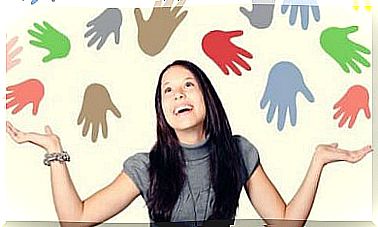Fear Of Conflict: Fear Prevents Us From Defending Ourselves

People who are afraid of conflict choose silence and “better let it go” to avoid confrontation and, according to them, to live in peace. These dynamics based on resistance and inaction, however, anchor them to a state in which unease, frustration and, above all, loss of dignity accumulate.
Fears, as such, perform an evolutionary function: they help us to survive, to react better to risks. The real problem of the modern world is that there are no longer predators that put our survival at risk, the threats have ceased to be physical to become almost exclusively pathological fears. And these fears, whether we like it or not, limit our growth, our social and emotional maturity.
Fear of conflict is widespread . These profiles are characterized by mental dynamics and speeches based almost exclusively on thoughts such as : “it’s better if I don’t do or don’t say this, so they don’t get angry”, “I don’t dare tell them because I could hurt them”; “I don’t know how to tell this person that what he did doesn’t feel right.”
Living on the edge of permanent insecurity is not life. Living in the refuge of stillness in the face of injustices is not healthy. Reacting to what you don’t like and defending your rights is a principle of well-being and health. Addressing conflicts and managing them effectively will help us grow.

Fear of conflict: what lies behind this fear?
We could say that an early retreat avoids many conflicts. We all know this and all of us have sometimes put this principle into practice, since in general it is a strategy that gives good results. However, persistent use of retreat is not an adequate response to all circumstances. Not when injustices are committed and we have to defend ourselves, delimit, react. The continued use of avoidance will gradually lead us into the circle of suffering, into a very healthy defensive barrier.
Almost without realizing it, we accept situations that we do not want. We empower others and let our personal limitations melt like sugar in a cup of coffee. People who fear conflicts fill the waiting rooms of psychology and health professionals for a fact more than obvious: end for somatization frustration (muscle pain, digestive problems, ulcers, cold sores …). Not to mention mental problems, such as anxiety disorders.
If we ask ourselves what lies behind this corrosive fear, we can say that it is not always easy to outline an indicative profile for each individual. However, some common characteristics can be noted:
- People lacking authentic emotional intelligence (They don’t recognize their emotions, they choose to hide them, they lack assertiveness, social skills …)
- They fear losing the bond or relationship with others by authentically expressing their thoughts and emotions. They relate sincerity to danger, to the possibility of losing someone.
- They worry too much about the social image they offer of themselves : they don’t want to make mistakes, create disagreements.
- When there is a conflict, they don’t always avoid it. On many occasions they opt for the most politically correct option : giving in or taking the blame in the name of harmony.
- They are moved by the idea of having to get along with everyone.

You need to change your view of the conflict
Just say the word “conflict” out loud to visualize a battlefield. A hostile scenario where words fly and strike, where discrepancies reach insult, where differences generate insurmountable distance, where you end up losing everything. It is necessary to make a change, to change perspective, to create a new vision on this idea.
People who are afraid of conflict must first understand that these situations can be very positive. Resolving discrepancies effectively affects our identity and self-esteem, also helping us to make the relationships and social contexts in which we move on a daily basis healthier. Remember that conflict can arise in almost all circumstances: in the queue at the supermarket, with our partner, with children, with a colleague …
Stabilizing ourselves in passivity or flight takes us away from our social role. We have the obligation to know how to agree, to dialogue, to solve problems, to negotiate and to satisfy our needs, our integrity. It is not wrong, it requires work, perseverance and adequate training of one’s social skills, emotional management and self-knowledge. We stop running away from ourselves and face life to achieve well-being.









